Princeton Professor Emeritus of Geosciences Defends Marine Seismic Surveys for Study of Earth
 R/V Maurice Ewing – The vessel was also slated for use in summer 2014 for a Rutgers University-led near-shore seismic study – opposed by many on the Jersey Shore, including fishermen, lawmakers and the nonprofit Clean Ocean Action, because of potential harm to sea life and fisheries commerce. Read the rest here 08:29
R/V Maurice Ewing – The vessel was also slated for use in summer 2014 for a Rutgers University-led near-shore seismic study – opposed by many on the Jersey Shore, including fishermen, lawmakers and the nonprofit Clean Ocean Action, because of potential harm to sea life and fisheries commerce. Read the rest here 08:29

































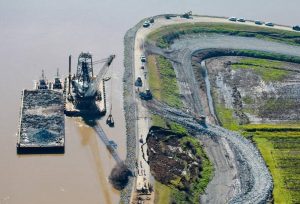
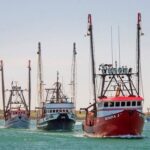

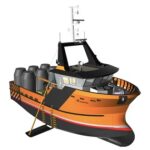

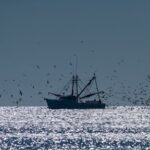
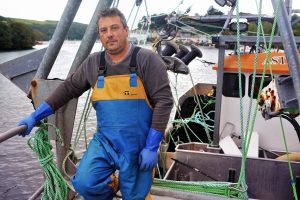
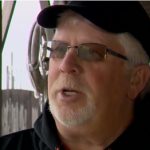

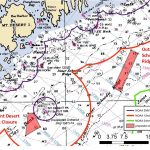
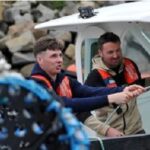
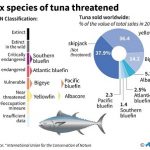





In response to the article above about the Professor who defends seismic blasting, and who also apparently happens to be one of the founding fathers of seismic blasting, here’s some background: http://www.princeton.edu/geosciences/people/hollister/
In the above link see “A Celebration of the Life and Work of Lincoln Hollister”:
“In the fall of 1987, when looking down on the inland fjord that is Lake Como, Italy, (one of the world’s foremost “upper-crust” resort locations) the idea struck him that one could take a seismic survey up the fjords of British Columbia that cut across the Coast Mountains. This could be accomplished by towing airguns behind a ship that could fire thousands of pulses at known location and time, with the pulses being recorded by hundreds of closely spaced portable seismometers placed along the shores of the fjords and into the continental interior.”
“Thus in 1993 was born the multidisciplinary project ACCRETE, which included a combined offshore/onshore seismic study that provided an unprecedented image of the top 50 km of the earth’s crust and mantle for a 500 km x 300 km area straddling the Alaska-British Columbia border.
In starting ACCRETE, Hollister gained the support of local residents who had at first worried that the project might be environmentally threatening: the use of airguns in inland waterways where fishing is the basis of the local economy. He found, however, that the local residents were very receptive to learning what was to be done and how and why. Understanding led to reduced fear, and
ACCRETE gained permission to proceed from government agencies, community groups, and native tribes. After the seismic phase of the study was finished, it was clear no whales or fish had been hurt. Lengthy negotiations to carry on research on tribal lands led to subsequent cooperative educational outreach projects with the tribes and with other community groups and schools in the region. Later, at a tribal council meeting, Hollister presented the Nisga’a Nation with a Princeton University NCAA trophy basketball, signed by the coaches of back-to-back Ivy League championship teams.
(Really? A Princeton NCAA trophy basketball?)
Also a coincidence that “Hollister and Andronicos (2006) used the results of ACCRETE and those of previous studies to compile a geologic cross section (Fig. 4) from the interior of British Columbia to the Pacific Ocean.” (The very same area, Prince Rupert Sound, that is now targeted for extensive
oil and gas drilling.) http://geoweb.princeton.edu/research/ACCRETE/hollister_08.pdf
Back to the original article: “The biggest threats to marine life include dredging and fishing and bycatch…” said Lincoln Hollister. The postponed Rutgers (seismic blasting) project is “absolutely not a tool for oil and gas
drilling,” Hollister insists, but rather a study of sea level change.
Yes, Professor Hollister such admirable scientific zeal; but what about these words from the American Petroleum Institute:
Press briefing on Atlantic seismic surveys Erik Milito, API director upstream and industry operations.
Thursday, February 27, 2014
“The economic benefits of opening the Atlantic to offshore oil and natural gas development will be felt all across the country…”
“In order to achieve these gains, the government must permit seismic surveys in the Atlantic and hold Atlantic lease sales under the next five-year plan for offshore oil and natural gas. That plan will cover lease sales from the second half of 2017 to the first half of 2022.”
“Seismic surveys work by recording how sound waves generated near the surface reflect off the rocks beneath the ocean floor. These recordings allow scientists to produce detailed 3-dimensional maps that give engineers the information they need to identify the safest and most efficient drilling locations.”
http://www.api.org/news-and-media/testimony-speeches/2014/erik-milito-press-briefing-on-atlantic-seismic-surveys
And probably only more coincidence that Professor Hollister’s area of research: i.e. “understanding petrologic significance of compositional zoning in minerals, interpretation of fluid inclusions in metamorphic rocks” is just the same research that is required for the oil and gas companies “to identify the safest and most efficient
drilling [and fracking] locations.”
http://sterlinghillminingmuseum.org/aboutus/bios/lhollister.php
In response to push back from some NJ organizations Hollister remarked. “Indeed, seismic studies may lead to imaging of structures favorable for oil and gas. But if you don’t want oil and gas developed offshore, the place to stop it is in the exploratory drilling phase. One doesn’t know if a structure contains oil or gas until it is drilled.”
Oh well, either professor Hollister doesn’t know much about the government and oil company ocean-grab collusion or he thinks we don’t. Is he suggesting here that his research wouldn’t help zero in on oil or gas reserves? Or that anyone would actually be able to stop Shell/BP/Exxon-Mobil once they drill a hole and find oil and gas? That doesn’t make much sense, Professor.
Now, Professor Hollister apparently seems to be taking issue with the NGOs as they ignore science, Hey,Bravo! But is this conflict with them only regarding issues about their hostility toward seismic blasting or is it actually about calling out the charlatans at Pew, EDF, and Oceana for their self-serving donation plowing crap? We’ll see…
http://dailyprincetonian.com/news/2011/05/lincoln-hollister-43-years-of-standing-up-for-knowledge/